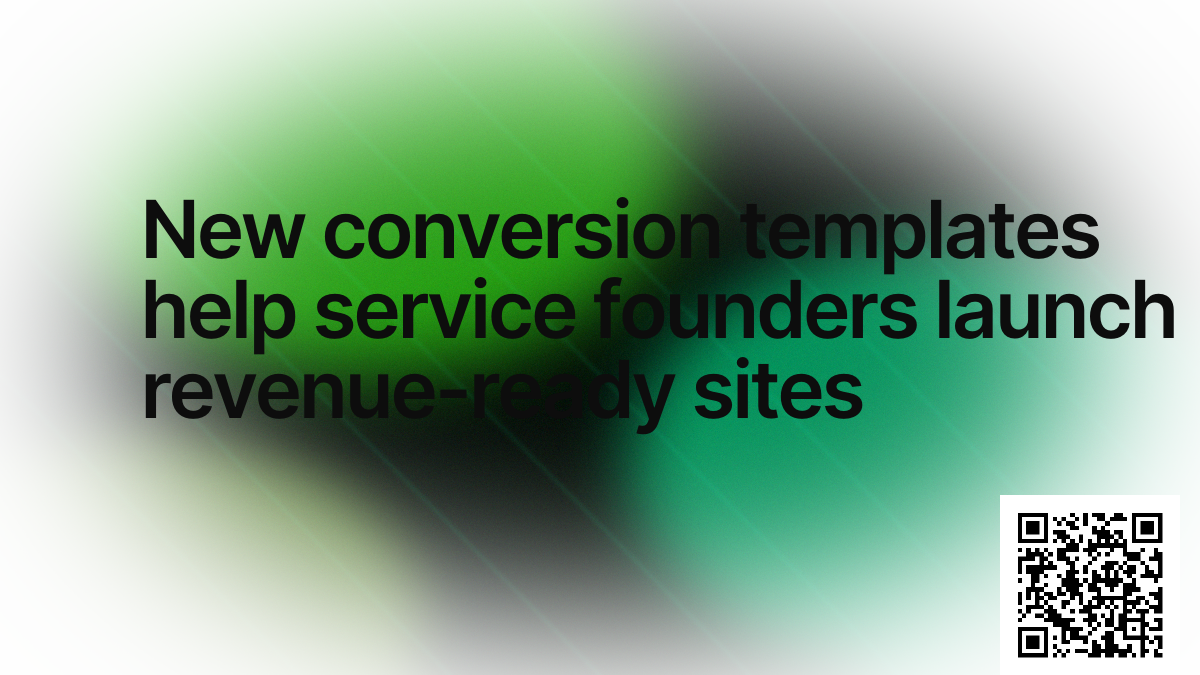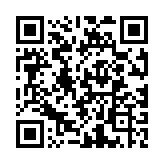New conversion templates help service founders launch revenue-ready sites

Why service founders needed a dedicated pack
SaaS founders have long enjoyed polished template libraries. Service businesses—consulting collectives, managed automation shops, niche agencies—often start with generic landing pages that fail to communicate outcomes or trust. Customer interviews highlighted the gap: service teams spend days adapting templates meant for software, bolting on booking flows and testimonials manually. MyDomAI’s new conversion template pack closes that gap by combining design, copy scaffolding, analytics, and compliance elements tuned to service-led go-to-market motion.
Building blocks included in the release
The pack ships with eight layout families covering audits, retainers, performance-based agreements, and hybrid offerings. Each layout includes modules for outcome framing, social proof, pricing transparency, and operations detail. Templates are responsive out of the box, meeting Core Web Vitals thresholds without manual tweaking. Beyond visuals, the pack ships with structured copy prompts, value calculators, and ready-made FAQ scaffolding to address the objections service buyers raise most often.
Analytics baked in from the start
Service founders need to prove performance quickly. Every template now embeds tag-less analytics configuration that works with MyDomAI’s privacy-safe telemetry pipeline. Hover states, booking interactions, and pricing toggles emit structured events without requiring cookies. Founders can view conversion funnels and channel attribution inside the MyDomAI console minutes after publishing, keeping growth loops tight. For teams operating alongside HubSpot or Salesforce, connectors push qualified lead data directly into CRM with proper campaign attribution.
Booking flows designed for flexibility
The templates integrate booking components that adapt to different sales cycles. Short-form consult requests, calendar embeds, and multi-step qualification flows are all available. Founders can select the component that matches their capacity model—some prefer to batch calls weekly, others offer immediate slots. Each component respects accessibility standards and keeps time zone logic synchronized with the visitor’s locale. Teams can also embed third-party scheduling tools; the components detect popular providers and inherit brand colors automatically.
Pricing transparency modules
Service buyers crave clarity. The pack includes tiered pricing sections, ROI calculators, and contract summary tables designed specifically for service offerings. Operators can toggle between monthly retainers, project pricing, and performance-share models. The design keeps contrast ratios high so that financial information remains legible on any device. Pricing tables also hook into MyDomAI’s revenue forecasting widgets, allowing finance teams to simulate pipeline outcomes directly from the landing page configuration screen.
Compliance ready from day one
Service deals often cross industries where compliance and policy matter. Templates include disclosure blocks tied to MyDomAI’s governance engine. If a team sells to healthcare, financial services, or the public sector, the compliance workspace automatically inserts the right disclosures and record-keeping elements. Legal teams can review, edit, and approve language in a governed workflow. These features reduce back-and-forth loops and help maintain the 100/100 Lighthouse scores that many enterprise procurement teams now demand as part of digital vendor assessments.
Customization without design debt
Founders may worry that template adoption leads to sameness. The pack introduces a token system that lets teams adjust color palettes, typography, and motion preferences inside MyDomAI without touching code. Tokens default to the new neon palette launched this cycle, yet designers can swap values to match brand standards while preserving accessibility. MyDomAI guards against contrast violations by running automated checks whenever a token changes, warning users if the new color pairing fails WCAG AA thresholds.
Stories from early adopters
Beta testers reported meaningful shifts in launch velocity. A marketing automation agency launched a campaign for mid-market manufacturers in 48 hours, down from its usual nine-day build. A compliance consultancy adapted the audit template to showcase service tiers and saw a 22 percent lift in qualified leads within the first week. Meanwhile, a venture studio incubating service brands used the performance-based layout to test three different pricing hypotheses simultaneously, selecting the winner based on live conversion dashboards.
Support for multichannel campaigns
Templates now ship with matching assets for email, ads, and social posts. MyDomAI automatically exports headline variations, hero imagery, and call-to-action language that align with the landing page. Growth teams maintain narrative consistency across channels without rewriting copy. When analytics surface a high-performing combination, the platform recommends rolling the message into nurture sequences or outbound scripts, closing the loop between acquisition and retention.
Roadmap: what’s next for service experiences
The product team is already iterating on the pack. Upcoming updates include microcopy tuned to procurement teams, expanded testimonial modules with video support, and localized variants for non-English markets. Customers can vote on priorities inside the product roadmap portal. Support teams now offer conversion audits tailored to service founders who want personalized feedback after deploying the templates.
Service organizations often juggle specialized delivery work with the need to communicate value quickly. MyDomAI’s conversion template pack acknowledges that reality. By pairing design, data, and compliance tooling in one release, the platform helps founders move from idea to revenue without sacrificing polish or accessibility. The result: fewer design bottlenecks, faster experimentation, and launches that feel as considered as the services they promote.
More ways to accelerate
View all resources- Skyline Registrars partnership brings premium drop intelligence into MyDomAI Partnership overview MyDomAI and Skyline Registrars have signed a data-sharing agreement that folds Skyline’s premium drop intelligence into … Read story
- MyDomAI deploys instant registrar sync for same-day portfolio launches Why instant synchronization matters now Domain teams have watched launch timelines stretch as portfolios sprawl across multiple registrars, … Read story
